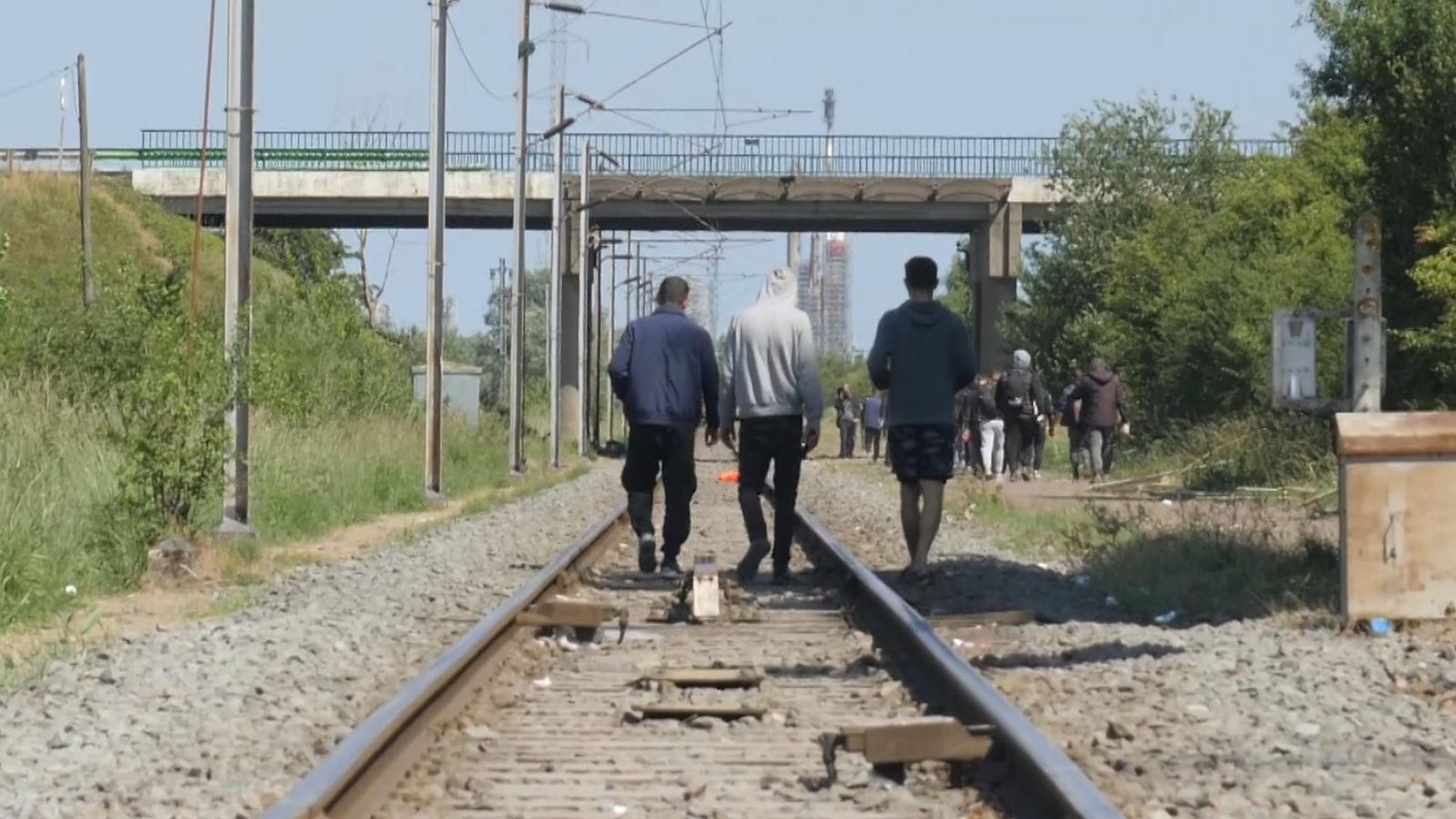On Sangatte beach, the conditions were perfect for everyone. A few sunbathers enjoying the warmth; some kite-surfers joining the sailors at sea. People in shorts strolling along to enjoy the weather.
And perfect, too, for the people-smugglers who make their money from taking migrants from this, the French side of the Channel, over to Britain.
When the sea is calm and the wind is light, you know that a wave of vessels will take to the water.
It is these people-smugglers who sit at the heart of the question about what actions the government should, and legally can, take to thwart cross-Channel migration.
Pretty much everyone agrees that it is an iniquitous position for desperate people to be paying large sums, often thousands of pounds, in order to get a place on an overcrowded and unsuitable boat to be ferried across one of the world’s busiest shipping lanes.
The government says that introducing its plan to take asylum seekers to Rwanda instead will cut the incentive and deter migrants from making the crossing.
Rwanda: Two asylum seekers have deportation delayed hours before first flight scheduled to leave UK
Rwanda deportation plan: Prince Charles ‘says policy is appalling’ as court rules first asylum seekers can be sent away
Five asylum seekers will not be sent to Rwanda, Home Office says, as hearing challenging plan begins
There is precious little evidence to back this up and, among the people we spoke to here in Calais, there was a large dose of indifference, coupled with a familiar seam of determination.
The simple fact is that every migrant who ends up in Calais does so for one reason – to get to Britain.
Often they have completed long, arduous journeys to get to this point, leaving behind war and enduring hardship along the way.
For that whole journey, most have known two things – firstly, that they desperately want to get to Britain.
Secondly, getting across the Channel will be difficult and will probably require the help of a smuggler.
The idea that they would get to this point and, confronted by a new policy, simply change their mind and return home does seem unlikely.
‘I have nothing’
Take Sharif Amin, for instance, who we meet by a dusty roadside. He fled fighting in Sudan, with dreams of reaching Britain.
With him was his wife, who he met after fleeing his country, and their son, who is now 18 months old and has spent his whole life as a refugee.
So would the prospect of being sent to Rwanda deter him. “No”, he tells us with a weary smile. “I have nothing.” So he has nothing to lose.
Read more:
What is it like to be a refugee in Rwanda?
Why are migrants being sent to Rwanda and how will it work?
There are plenty among these camps who are oblivious to this ruling but certainly not all.
A growing number of people among these tents and campfires are well aware of what has happened, and what it might mean to them.
We met one woman, who had fled from Kurdistan and spoke seven languages.
She was following developments about the Rwanda policy through news updates on her phone and had already taken legal advice before trying to enter the UK.
None of this is happening in isolation.
Migrants will not ‘let a scheme like Rwanda deter them’
In an industrial outlet near Calais, Jess Sharman and her team are arranging a warehouse containing food, toiletries, shoes, tents and various other necessities of an itinerant life.
Her charity, Care4Calais, offers support to the people living rough in the refugee camps that spring up before, invariably, being moved on by the police.
She agrees that action needs to be done but thinks the government plan is wrong and potentially counter-productive.
“As a deterrent, the threat of Rwanda is not significant,” she says.
“A lot of the guys we see here, coming through Calais, are people who have gone through unbelievable terrors – they have been tortured, forced into labour, become slaves, a huge number of things – seen family and friends killed – tortured themselves – and they are going to the UK to find safety.
Follow the Daily podcast on Apple Podcasts, Google Podcasts, Spotify, Spreaker
“They are not going to let a scheme like Rwanda deter them.
“The issue is that it actually risks doing the opposite. The people smugglers are going to increase their charges because they’ll say they now need to get people across without being caught by Border Force.
“And when they get there, these people are now not going to want to claim asylum in the UK, and risk being sent to Rwanda.
“Instead they are going to be forced underground, unregistered and vulnerable to exploitation. My worry is that it will end up helping the people smugglers, costing taxpayers a fortune and doing nothing for safety.”







